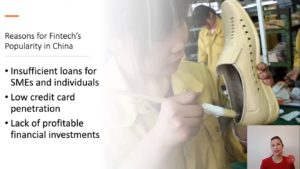
Only half a decade ago Silicon Valley thought China becoming a force of innovation was preposterous. Now, under Trump, China has proved them wrong, says business analyst Shaun Rein in a wide-ranging interview with state paper Global Times. Also: China’s successful fight against Covid-19 and decoupling economies.
Global Times:
GT: You have written three books: The End of Copycat China: The Rise of Creativity, Innovation, and Individualism in Asia, The End of Cheap China: Economic and Cultural Trends that Will Disrupt the World, and The War for China’s Wallet: Profiting from the New World Order. Does the end of “copycat China” and “cheap China” mean that innovation has become major trend happening within Chinese companies? How might this affect other major technological powers, especially the US?
Rein: In 2014, I published The End of Copycat China, where I predicted that China was going to become an innovation powerhouse. At that time, Silicon Valley criticized me heavily. They said I was crazy. They said that the Chinese were not creative, were culturally unable to innovate, and that the Chinese government stifled innovation.
But six years after I published the book, it’s quite clear that China is an innovation powerhouse. When it comes to mobile services, it’s three-plus-years ahead of the US, and maybe five years ahead of Western Europe. Because of China’s lead in mobile services innovation, we were able to better contain COVID-19. For example, in China, almost everybody uses WeChat Pay or Alipay. It’s a cashless, contactless society. In the US, people are still using cash and credit cards, which may also spread COVID-19. The US still has a lead in semiconductors, with platforms like Android and IOS.
But that’s not because China can’t do it. It’s because there are so many low-hanging fruits. Why would China invest in semiconductors when it could just buy American semiconductors and focus on making money with mobile services innovations? China clearly was looking for a win-win trade policy with the US. Chinese companies were not stealing IP. They are willing to pay for American technology. It was easier and a win-win situation for everyone.
But because of the Trump administration’s trade war and containment policy, China has now begun to focus on innovation with semiconductors and operating systems. It’s not easy. It will take five to 10 years. But we see China has set up a semiconductor fund of about $30 billion. We also see that Huawei is focused on its HarmonyOS. Chinese companies now have to focus on self-reliance. And it would be stupid for the US to think that Chinese cannot innovate with semiconductors or operating systems.
I think the Trump administration is shooting the US in the foot. American tech companies are now not able to sell to their biggest customers in China. My firm works with many American tech companies, and we develop their strategies. They are furious about Trump’s policies because they are now losing their biggest market. And they are scared to openly criticize, because they worry that Trump will attack them on Twitter and get his hawkish American politicians to boycott their products.
Shaun Rein is a speaker at the China Speakers Bureau. Do you need him at your meeting or conference? Do get in touch or fill in our speakers’ request form.
Are you looking for more experts on innovation at the China Speakers Bureau? Do check out this list.










